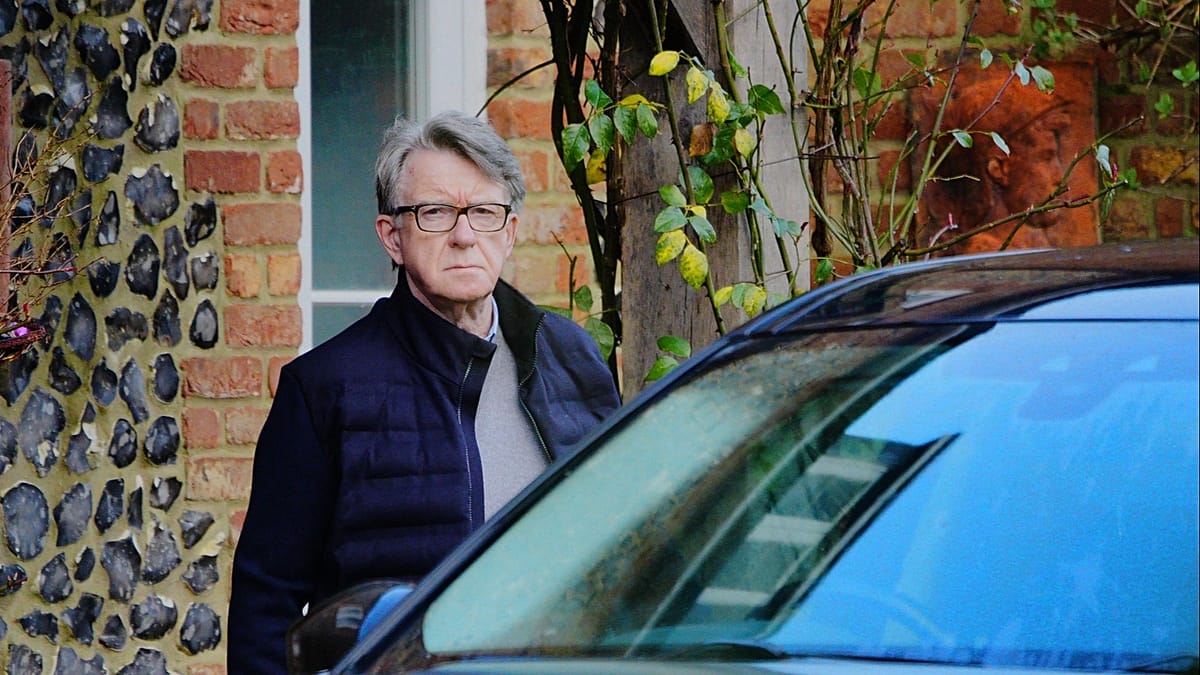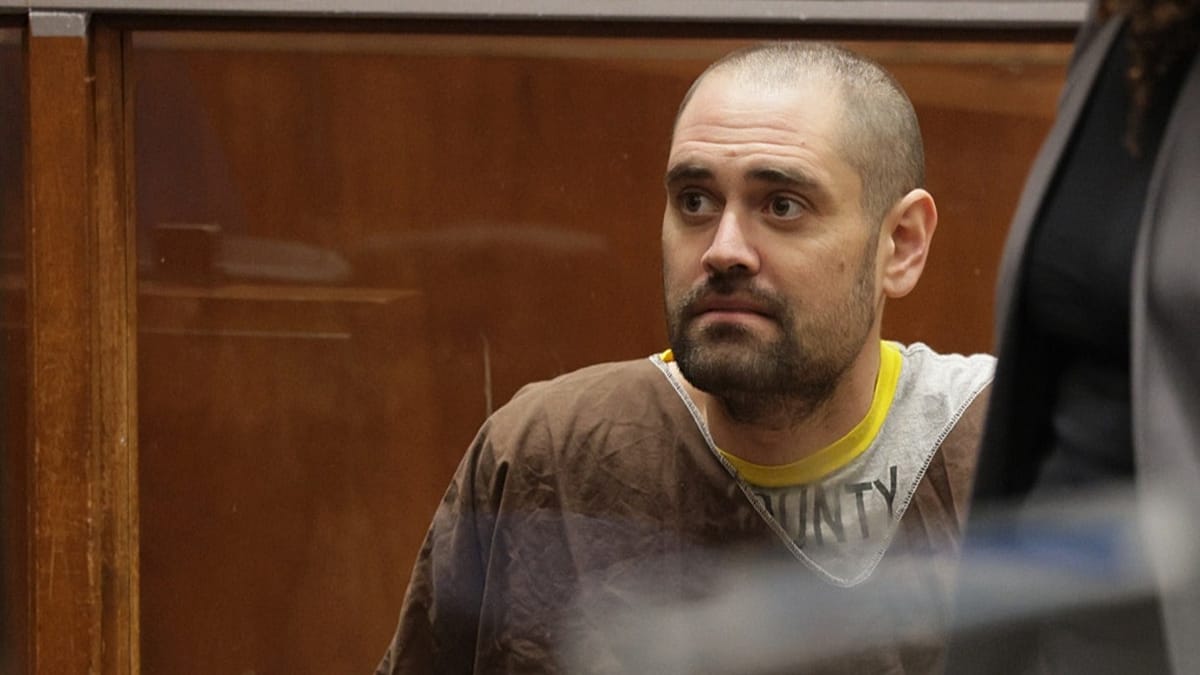The Mastermind review: Josh OConnor is truly magnetic in Kelly Reichardts latest film


Ever wandered through an established art gallery and thought about prying those valuable masterpieces from the wall and running out the door, all in broad daylight? That's what Josh O'Connor's character cooks up in The Mastermind. But it's not the entire story of Kelly Reichardt's latest, with the writer/director leaning on the art heist genre to take a deeper look into the reasons behind such a decision — and follow a family man on the run during social and political upheaval in America.
Set in '70s Massachusetts and loosely based on the high-profile Worcester Art Museum robbery, The Mastermind plays out such a scenario with charming realism, wholesome comedy, and a rich, seductive score. But its most valuable asset is O'Connor, whose magnetic performance is as hilariously deadpan as it is moving.
The Mastermind plans a highly cosy crime.

With a clear pivot in the film's centre, The Mastermind is essentially a story in two acts: the first involving a farcical art heist frankly best left to professional thieves, the second a rambling road trip through American towns, all tainted by the inescapable but subtle presence of the Vietnam War.
As for the heist, Reichardt keeps things characteristically minimalist and as far away from Ocean's 11 flamboyance as possible. We're talking no surveillance tech, limited security staff, and small-town cops on their lunch break. There are no nail-biter safe-cracking scenes, no lasers to avoid, no bait and switch. Instead of a motley crew of specialists pulling "one last job," it's a trio of regular guys led by middle-class family man and unemployed carpenter JB (O'Connor). With his chic and cool-headed wife Terri (Alana Haim) and adorable young sons (Jasper and Sterling Thompson) in tow, he cases the fictitious Framingham Art Museum in order to steal four works by American modernist Arthur Dove.
Everything about this relatively cosy crime feels soft and overtly autumnal, from Rob Mazurek's mellow jazz score to costume designer Amy Roth's array of plush sweaters and cardigans, to the homemade pillowcases Terri sews to transport the stolen works. JB uses paper maps to brief his co-conspirators and hands out beautifully hand-drawn flashcards of the works they need to steal. Cinematographer Christopher Blauvelt captures each scene with a nostalgic, low-contrast glow akin to the classic '70s movie aesthetic of The Holdovers, and Anthony Gasparro's production design is a crunchy-leafed suburban landscape of American modernist architecture — and all the wood panelling that goes with it.

That being said, there are some sharp edges here once reality hits. Quietly confident he can pull off such a daring crime with ample preparation, JB unwisely puts his faith in his skittish collaborators (Eli Gelb, Cole Doman, and Javion Allen), leading to a bungled execution that is both stressful and comical to watch. Reichardt deploys slapstick comedy sparingly but effectively. At times, The Mastermind even veers into Buster Keaton territory, especially in one of the film's best scenes involving O'Connor's dalliance with a barn ladder and the valiant aim of loft storage. Reader, I cackled. In fact, O'Connor's ability to channel a Keaton-worthy deadpan stare continues throughout the film, one of the many subtle skills the History of Sound actor wields.
Josh O'Connor is a master of deadpan comedy in The Mastermind.

Though The Mastermind precedes the technology by a few decades, O'Connor's JB feels like personification of the deluded shrug guy emoticon, assuring the people around him (especially his exasperated parents, played by Hope Davis and Bill Camp) that everything's going to work out. Despite the title of the film, JB is far from a criminal mastermind, despite one or two Frank Abagnale Jr. moments. However, Reichardt is less interested in following the flashy finesse of a master thief, more in the string of life decisions JB makes to try and provide financial stability for his family (and yes, a sense of personal accomplishment for himself).
As much as The Mastermind gives O'Connor to play with, it sadly does not bestow the same opportunity on his co-star, Alana Haim, whose role as JB's wife seems bizarrely restricted. Aside from a brief spell of camaraderie during the planning of the heist, Terri is given little to do but glare and seethe at her bumbling husband, though Haim miraculously finds nuance and expression within her allotted silence. JB quite literally pleads with his wife to "say something" and express her feelings. And while women onscreen shouldn't always be required to flip tables to speak their minds, Terri deserves more characterisation than an alarm clock thrown offscreen.

Where The Mastermind does extrapolate a truly marvellous character is in JB's old friend Fred, an absolute highlight of the film played by John Magaro who is jubilant at having his "mind blown" by his friend's extraordinary actions. The Past Lives actor brings a brilliant sense of levity and warmth to the film (and JB himself) when it's needed, offset by the bristling disdain exuded by Fred's partner Maude (Gaby Hoffmann). We're not privy to every detail of the relationship between these three, with Reichardt leaving the audience to fill in more than a few gaps for themselves. And that's half the magic of The Mastermind.
Featured Video For You
Kelly Reichardt leaves the audience to piece together The Mastermind.

Showing no intention of tying The Mastermind up in a neat bow, Reichardt doesn't overexplain in her film. Relationships between characters emerge slowly through dialogue; historical context isn't shoved down our throats. But the omnipresence of the Vietnam War is impossible to miss.
The advent of television broadcasting sees JB's father glued to the nightly news while our protagonist sweats about the details of his hometown heist. Anti-war protests and demonstrations pepper the media and the streets on differing scales. This crucial moment of political turbulence in America comes into sharper focus once JB hits the road, where he notices a naval officer on the Greyhound bus shipping out and sees young student activists lambasted by older nationalists. The social and cultural shifts of the '70s seep into the central narrative through offhand comments; a conversation between JB and Fred mentions Canadian communes full of "draft dodgers, radical feminists, dope fiends — nice people."
It's Reichardt's ability to thread such tempestuous historical context through comedy and the heist genre that makes The Mastermind such a unique and endearing film. And it's O'Connor's magnetic performance that makes the film a masterpiece of subtlety and deadpan humour. There are no heist movie archetypes here, only crunchy leaves, modernist art, and bumbling realism. It's a combination worth the steal.















































